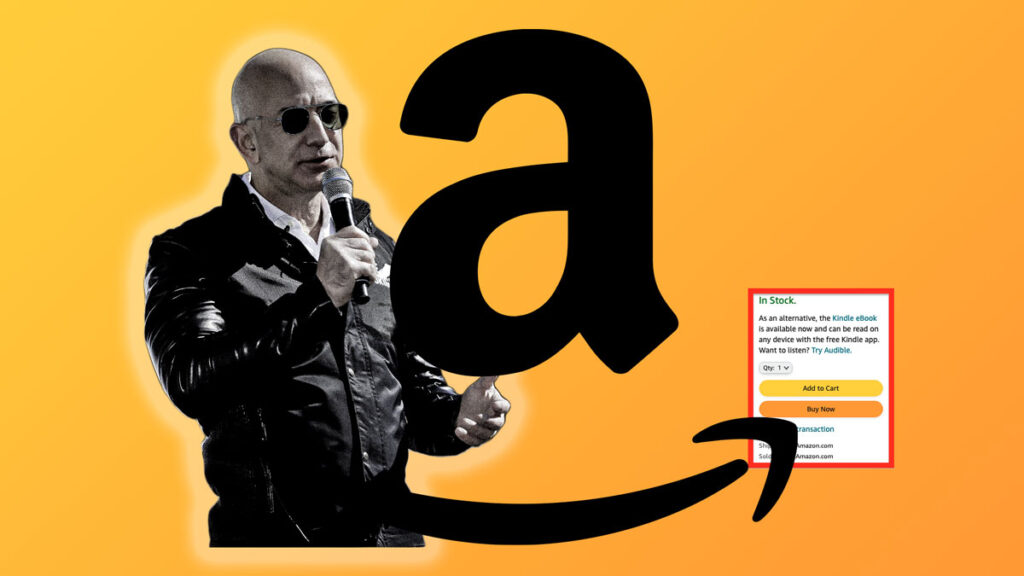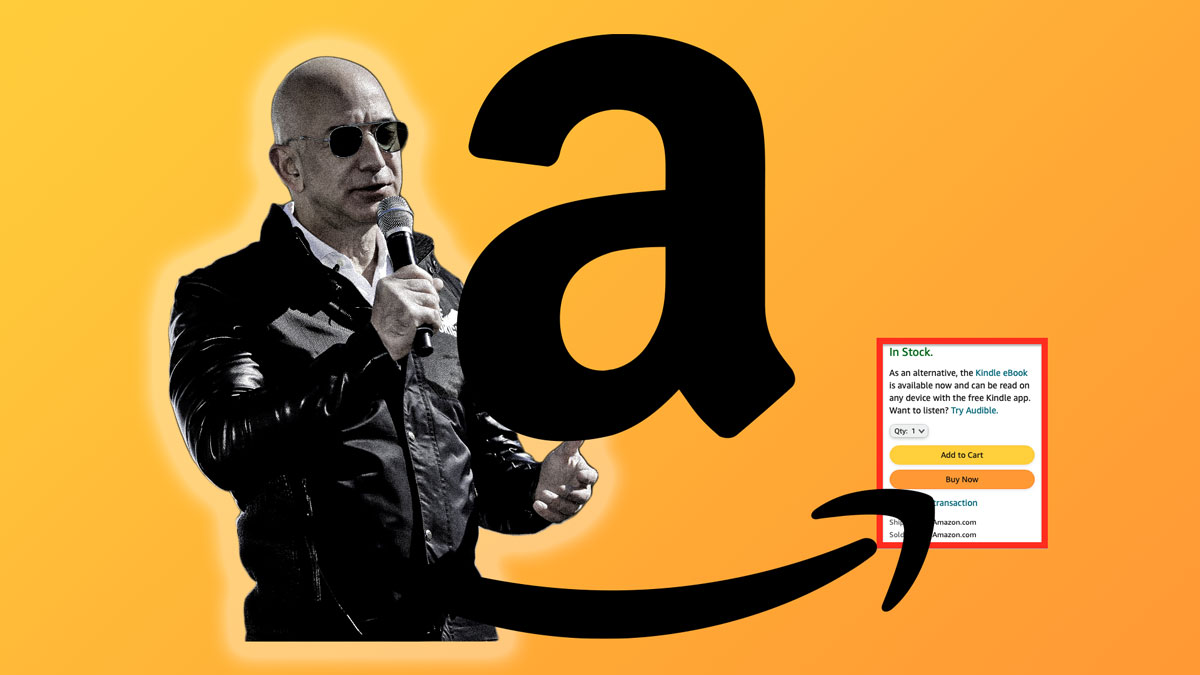
Above: Photo / Collage / Lynxotic
A browser extension that reveals Amazon brand and exclusive products while you shop on the site
Amazon has registered more than 150 private-label brands with the U.S. Patent and Trademark Office and carries hundreds of thousands of items from these house brands on its site.
A recent investigation by The Markup found that the online shopping behemoth often gives its own brands and exclusive products a leg up in search results over better-rated competitors. We also found Amazon is inconsistent in disclosing to shoppers that those products are Amazon-brand products or exclusives.
Few respondents in a 1,000-person national survey we commissioned recognized the best-selling Amazon brands as owned by the company, apart from Amazon Basics.
So we decided to add some transparency for Amazon shoppers. The Markup created a browser extension that identifies these products and makes their affiliation to Amazon clear.
Brand Detector highlights product listings of Amazon brands and exclusive products by placing a box around them in Amazon’s signature orange. This happens live while shoppers browse the website.
The selective staining is inspired by a lab technique in biology called an assay, which we also applied to web pages in a past investigation about Google. That investigation revealed that the tech giant’s search engine gave Google properties 41 percent of real estate on the first page of popular searches.
How Does It Work?
The browser extension uses various techniques developed and refined during our year-long investigation to identify Amazon brands and exclusive products (read more in our methodology).This includes checking a list of proprietary products we created and cross-referencing Amazon’s “our brands” filter. The extension is available for Chrome (and other chromium-based browsers) and Firefox browsers.
The extension sits in the background until the user visits Amazon’s portal in the United States (amazon.com), Australia (amazon.com.au), Canada (amazon.ca), Germany (amazon.de), India (amazon.in), Italy (amazon.it), Japan (amazon.co.jp), Mexico (amazon.com.mx), Spain (amazon.es), or the United Kingdom (amazon.co.uk) and searches for something. At that point, Brand Detector identifies Amazon brands and exclusives and highlights them on the search results page. (It does not extend the product page.)
Because the “our brands” filter is not comprehensive, the extension also cross-references products against a list of proprietary electronics we found from Amazon’s best sellers section (which Amazon doesn’t include in the “our brands” filter) and performs partial text matching for phrases like “Amazon brand” and “Featured from our brands” and full text-matching for “AmazonBasics” and a few other brand names that didn’t tend to return false positives in our tests.
Even with these techniques, the extension may still miss some Amazon brand or exclusive products from time to time.
Amazon Brand Detector does not collect any data, in keeping with The Markup’s privacy policy. We won’t know how you used it, if at all, what you searched for or what you end up buying.
The extension only works on desktop browsers, not mobile apps.
Cross-Extension Compatibility
The extension can work in conjunction with other extensions, such as Fakespot, which affixes a letter grade to any Amazon product based on the authenticity of reviews for that product. Users can use these extensions together to find Amazon brands and exclusive products and their Fakespot grades.
The extension also works with full-page screenshot extensions, like “Awesome Screenshot & Screen Recorder.” You can use these to capture an entire search page stained by the extension.
The Markup is not affiliated with these extensions, nor do we endorse them.
Try It Out:
Enhance your Amazon shopping by knowing which products are from Amazon’s own brands and exclusives.
This article was originally published on The Markup By: Leon Yin and was republished under the Creative Commons Attribution-NonCommercial-NoDerivatives license.
Related Articles:
- What if “Non-human Biologics” are Watching?
- ‘Most Significant Charges Yet’: Trump Indicted for Trying to Overturn 2020 Election
- But what am I?’ Pee-wee Herman creator and star, Paul Reubens dead at 70
- The Congressional Hearing On UFOs Confirmed the Existence of Aliens? Maybe
- The Earthly Frontier: Building a Sustainable Future at Home
Find books on Music, Movies & Entertainment and many other topics at our sister site: Cherrybooks on Bookshop.org
Lynxotic may receive a small commission based on any purchases made by following links from this page
